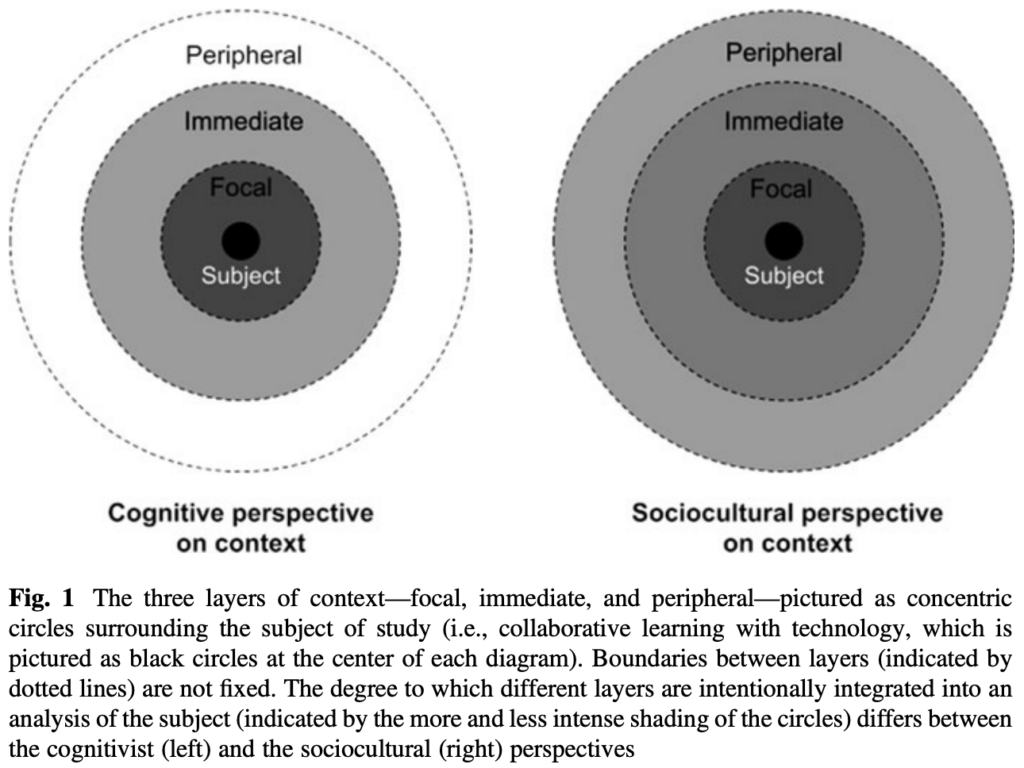In a chapter co-authored with Kayla DesPortes and Chris Hoadley, we discuss the role of context in the study and design of computer supported collaborative learning environments. The chapter appears in the International Handbook of Computer-Supported Collaborative Learning. You’ll find a review of the handbook here, and a peek at the figure we used to conceptualize different theoretical perspectives on context. Check out the chapter itself (ResearchGate, Academia.edu, or Springer) for some worked examples!
Matuk, C., DesPortes, K., Hoadley, C. (2021). Conceptualizing Context in CSCL: Cognitive and Sociocultural Perspectives. In Cress, U., Wise, A. Rose, C. & Oshima, J. (Eds.). The International Handbook of Computer-Supported Collaborative Learning (pp. 85-101). Cham: Springer. DOI: 10.1007/978-3-030-65291-3_5
Abstract
Context is a critical consideration in CSCL research and design, yet difficult to delineate. Its definition can encompass aspects of the environment, the learners, the technology, and their histories and cultures. Depending on researchers’ theoretical perspectives and the focus of their study, different aspects of context are forefronted in the data collection and analysis, while others are given less importance. In this chapter, we offer a framework that conceptualizes context in terms of focal, immediate, and peripheral layers surrounding the object of study. We describe how the aspects contained within each layer of context differ depending on one’s theoretical orientation. To illustrate, we offer contrasting examples of CSCL research that approach context from a cognitive perspective and a sociocultural perspective. We end by outlining several areas for future research and highlight the importance of technological advances to keep pace with the theoretical conceptions of context in order to support the design of responsive CSCL environments. Ultimately, we argue that a full understanding of context leads to more robust and ecologically sound CSCL research and design.

